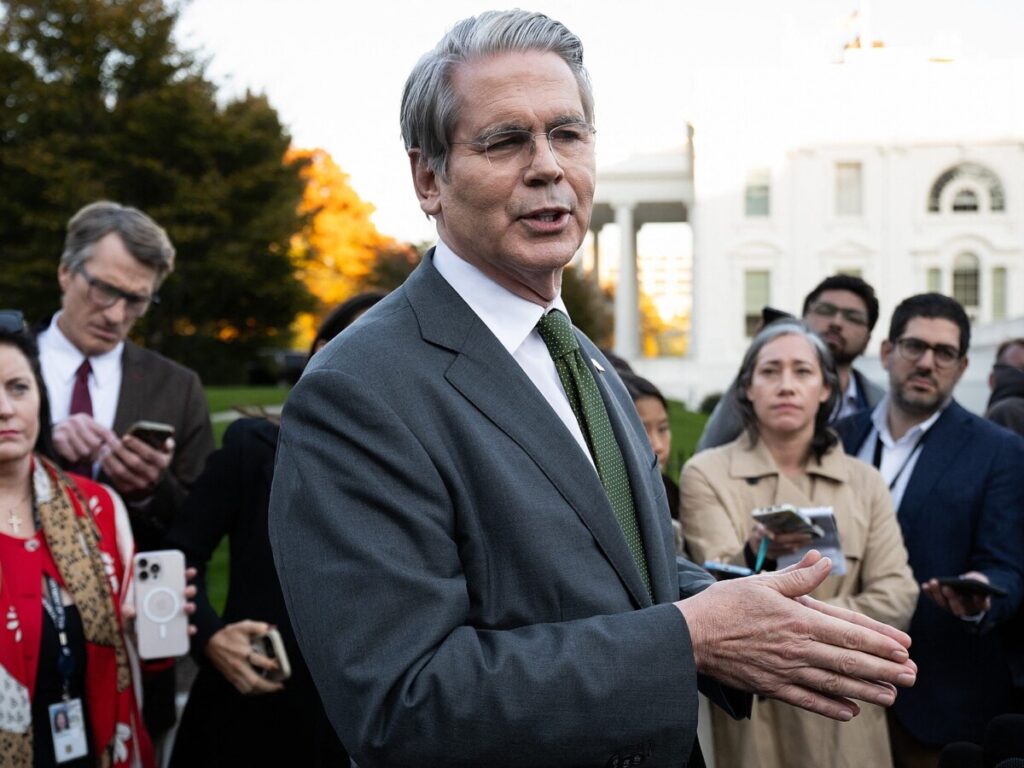Treasury Secretary Bessent says Trump wants to lower coffee and banana prices ‘very quickly’
In a bid to address rising consumer prices, particularly for goods not produced domestically, Treasury Secretary Scott Bessent announced that the Trump administration will soon unveil measures aimed at reducing the cost of coffee and other imported goods. As of September, coffee prices have surged nearly 19% over the past year, prompting concerns about affordability among American consumers. During an interview with Fox News, Bessent hinted at “substantial announcements” in the coming days regarding tariffs on products such as coffee, bananas, and various fruits, which the U.S. does not grow in significant quantities. This move comes amid increasing scrutiny over economic conditions and the impact of tariffs on consumer prices.
President Trump has previously indicated that the administration would consider lowering tariffs on coffee, which has become a focal point in discussions about affordability. Following a July decision to impose a 40% tariff on Brazilian goods, which was already subject to a 10% tariff, the administration has faced backlash regarding the economic implications of such policies. Critics argue that these tariffs contribute to higher prices, contradicting the White House’s stance that tariffs do not affect consumer costs. The context of this announcement is further complicated by recent electoral outcomes, where economic issues were central to voter concerns, particularly in key races in Virginia and New Jersey. As Trump continues to assert that the economy is thriving, the administration’s upcoming actions may be a strategic response to voter sentiment and the pressing need to address inflationary pressures on everyday goods.
As the administration prepares to roll out these new measures, the effectiveness and timing will be closely monitored by both consumers and economists. The upcoming announcements could potentially reshape the landscape of U.S. import tariffs and provide relief to consumers grappling with high prices. However, the ongoing legal challenges surrounding the tariffs imposed by Trump add another layer of complexity to the situation, raising questions about the future of U.S. trade policy and its impact on the economy.
Treasury Secretary Scott Bessent said the Trump administration will take action to lower the prices of goods not grown in the US
Saul Loeb/AFP via Getty Images
The Trump administration says it will take action soon to attempt to lower coffee prices.
As of September, coffee prices have increased nearly 19% in the last year.
“You’re going to see some substantial announcements,” Bessent said Wednesday morning.
The White House says it will take actions “very quickly” to try to lower
coffee prices
amid growing concerns about affordability.
Treasury Secretary Scott Bessent said on Wednesday that the Trump administration would take action in the coming days that seeks to lower the prices of “coffee, bananas, and other fruits.”
“It’s tough to do a lot of specific things, but I can tell you, Brian, you’re going to see some substantial announcements over the next couple of days in terms of things we don’t grow here in the United States, coffee, bananas, and other fruits,” Bessent told Fox News host Brian Kilmeade during an interview.
Bessent did not get into the specifics of those announcements, but
President Donald Trump
previously said that it would involve lowering some tariffs.
“Coffee, we’re going to lower some tariffs,” Trump told Fox News host Laura Ingraham in an interview that aired Tuesday night.
Ingraham pressed Trump on the issue of affordability after he said that “the only thing” affected by high prices was beef. Ingraham then brought up the cost of coffee.
As of September, the cost of all coffee varieties, including roasted and instant, has increased by 18.9% over the last year, according to the consumer price index.
In July, Trump imposed a 40% tariff on Brazilian goods in addition to an already existing 10% tariff. Trump has said he wants to use tariffs to reshore US manufacturing, but the US produces less than 1% of the coffee consumed domestically, meaning it must rely on other producers, such as Brazil, to make up the vast difference.
Trump’s order cited actions by the Brazilian government, including its prosecution of former President Jair Bolsonaro, as reasons for the increased tariffs. The authority Trump used to impose the Brazilian tariffs, along with scores of others, is now the subject of a
legal fight before the US Supreme Court.
The White House has repeatedly argued that tariffs don’t increase prices, a view with which most economists disagree.
The issue of affordability resurfaced during the nation’s elections earlier this month, as Republican candidates performed even worse than expected in key races in Virginia and New Jersey. The economy was the dominant concern of voters, according to preliminary findings from the AP Voter Poll, which was based on a survey of 17,000 voters in Virginia, New Jersey, California, and New York City.
Asked about voters’ concerns and what should be done, Trump told Ingraham, “More than anything else, it is a con job by the Democrats.”
Trump said later, “We are doing phenomenally well, this is the greatest economy we’ve ever had.”
Read the original article on
Business Insider
Eric
Eric is a seasoned journalist covering Business news.



